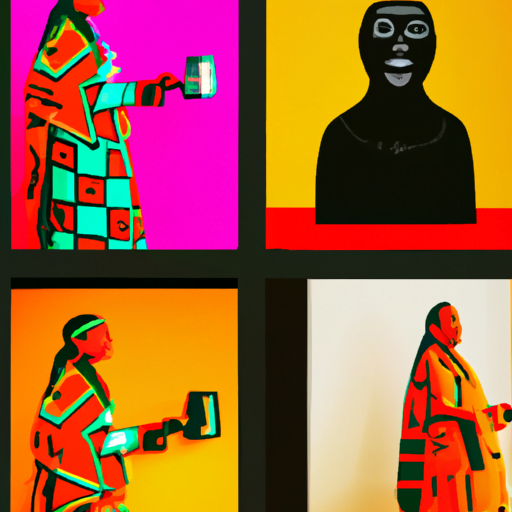
-
Table of Contents
- Exploring Indigenous Art Inspirations in Design
- The Cultural Significance of Indigenous Art
- The Influence of Indigenous Art on Design
- Fashion and Textile Design
- Architecture and Interior Design
- Case Studies: Indigenous Art in Design
- Case Study 1: The Nike N7 Collection
- Case Study 2: The Indigenous Design Charter
- Conclusion
Exploring Indigenous Art Inspirations in Design

Indigenous art has a rich history and cultural significance that spans thousands of years. It is a powerful expression of identity, spirituality, and connection to the land. In recent years, there has been a growing appreciation for indigenous art and its influence on various design disciplines. From fashion to architecture, indigenous art inspirations have found their way into contemporary design, creating a unique fusion of tradition and modernity. This article explores the impact of indigenous art on design and highlights some notable examples and case studies.
The Cultural Significance of Indigenous Art
Indigenous art is deeply rooted in cultural traditions and carries immense spiritual and historical significance. It reflects the stories, beliefs, and values of indigenous communities, serving as a visual language that connects past, present, and future generations. The art forms vary across different indigenous cultures, including painting, carving, weaving, and pottery.
One of the key aspects of indigenous art is its connection to the land. Many indigenous communities have a strong spiritual bond with their ancestral lands, and this is often reflected in their artwork. The use of natural materials, such as clay, wood, and natural pigments, further emphasizes this connection.
The Influence of Indigenous Art on Design
The unique aesthetics and cultural significance of indigenous art have inspired designers across various disciplines. By incorporating indigenous art inspirations into their work, designers not only pay homage to indigenous cultures but also create designs that are visually striking and culturally meaningful.
Fashion and Textile Design
Indigenous art has had a significant impact on the world of fashion and textile design. Designers have drawn inspiration from indigenous patterns, motifs, and techniques to create unique and culturally diverse collections. For example, the Australian fashion label “Country Road” collaborated with indigenous artists to create a collection that featured traditional Aboriginal dot paintings translated onto clothing and accessories.
Similarly, the fashion brand “Pendleton” has a long history of incorporating indigenous art inspirations into their designs. They have collaborated with Native American artists to create blankets, clothing, and accessories that showcase traditional patterns and symbols.
Architecture and Interior Design
Indigenous art has also influenced the field of architecture and interior design. Many architects and designers have incorporated indigenous art inspirations into their projects, creating spaces that celebrate indigenous culture and create a sense of place.
For example, the Canadian Museum for Human Rights in Winnipeg, Canada, features a stunning glass facade inspired by the traditional patterns found in indigenous beadwork. The design not only pays homage to indigenous art but also creates a visually striking and culturally significant landmark.
In interior design, indigenous art inspirations can be seen in the use of traditional patterns and motifs in furniture, textiles, and wall coverings. These designs not only add visual interest but also create a sense of cultural identity and connection to the land.
Case Studies: Indigenous Art in Design
Case Study 1: The Nike N7 Collection
The Nike N7 Collection is a collaboration between Nike and indigenous artists and athletes. The collection features footwear and apparel that incorporate indigenous art inspirations, such as traditional patterns and symbols. The collaboration aims to promote and support indigenous communities through sport and design. A portion of the proceeds from the collection goes towards funding sports programs for indigenous youth.
Case Study 2: The Indigenous Design Charter
The Indigenous Design Charter is a set of principles developed by the Australian Institute of Architects and the Design Institute of Australia. The charter aims to promote the respectful and meaningful incorporation of indigenous art and culture in design projects. It provides guidelines for architects and designers to engage with indigenous communities, incorporate indigenous art inspirations, and create spaces that are culturally sensitive and inclusive.
Conclusion
Indigenous art inspirations have become an integral part of contemporary design, enriching various disciplines with their unique aesthetics and cultural significance. From fashion to architecture, designers have embraced indigenous art to create visually striking and culturally meaningful designs. By incorporating indigenous art inspirations, designers not only pay homage to indigenous cultures but also create designs that celebrate diversity and foster a deeper understanding of indigenous traditions. As the appreciation for indigenous art continues to grow, it is essential for designers to approach its incorporation with respect, collaboration, and cultural sensitivity.
